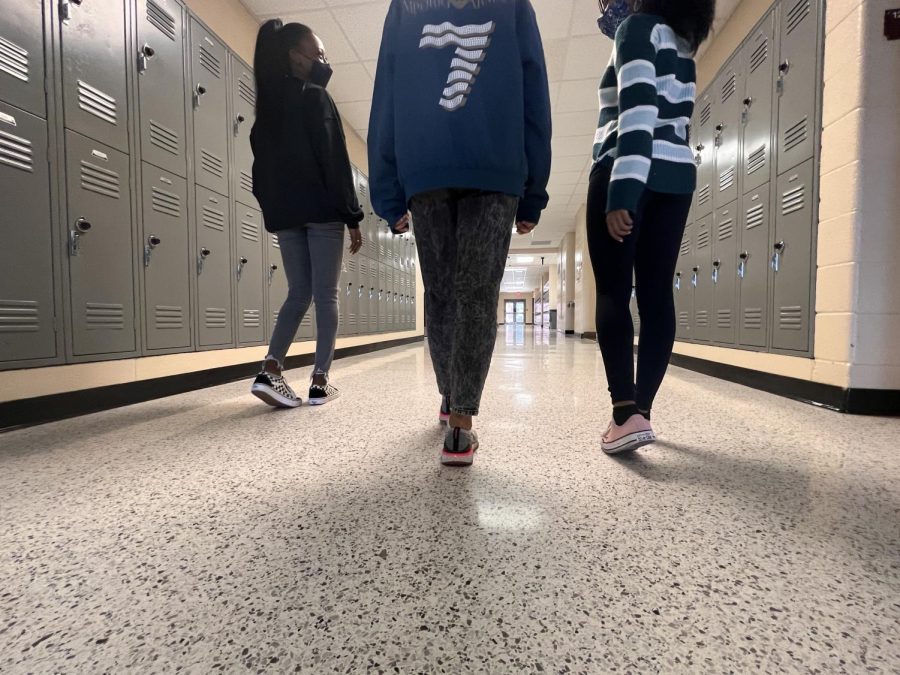Saved By the Bell: SFHS Implements a New Change to Monday Passing Periods
Walking through the halls. On Monday, South exercises the new six-minute passing period. Students walked through the halls to get to their classes in time.
January 26, 2022
On Monday, South Forsyth High School made an impactful change to class transition lengths as students entered the second semester of the year. Previously, SFHS allowed students a 12-minute passing period during “skinny” seven-period days. After receiving input from students and staff, the administration decided to return to the 6-minute passing periods which were standard in previous school years.
Mr. Brian Nelson, one of SFHS’ assistant principles, discussed how the administration eventually decided upon this change: “Most kids were in their classrooms by the five or six-minute mark just sitting around, and the hallways were empty,” he said. “There came a point when we realized that if we don’t need the extra time, it’d be good to have it for instructional time in the classroom.”
Furthermore, Mr. Nelson said the administration decided to keep the passing periods “consistent” with the block schedule days.
The benefits of increased instructional time have already been noted by many South staff members. AP Statistics teacher Mrs. Stacey Anderson claimed that the three extra minutes “came in handy” during her lesson in her first-period class.
Even though it’s only three extra minutes, Anderson believes it’s a “good amount of time” to tie up loose ends after shorter lectures on Mondays.
South students have different views on the recent adjustment.
“A couple of my friends and I think it’s really inconvenient because a lot of us have classes that are far away to get to,” said junior Leah Ciccarelli. “I have a class period in culinary, so even with the 12-minute passing period, I’m always pretty late.”
However, not all of these minutes were returned to class periods. SFHS added some recovered time to students’ lunch periods, so they have more time to process and eat their lunches as well as converse with friends. Moreover, lengthening lunch times should improve cafeteria lines and crowdedness. Due to the long lines, some students are hesitant to buy lunch for fear they won’t be able to finish their meals in time.
“[Increased lunch time] allows me to have a longer brain break and socialize with my friends,” explained junior Vikranth Bellamkonda, “which I think is really important to have in order to unwind from my busy schedule.”
Overall, the students, staff, and faculty are optimistic about this new change to the Monday “skinny” schedule, and everyone is grateful that the school is slowly transitioning back into a more “normal” school year.





